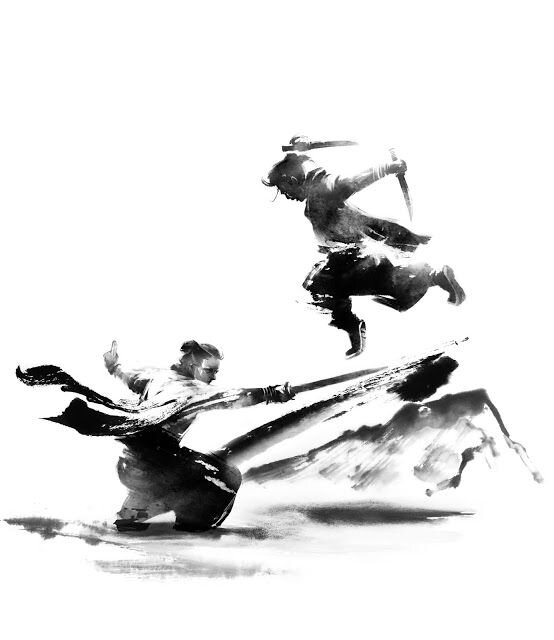Backlist Review: The Poppy War by R.F. Kuang
Synopsis:
When war orphan Rin aced the Keju—the Empire-wide test to find the most talented youth to learn at the academies—she surprised everyone: test officials, the guardians who wanted to marry her off and further their criminal enterprise, and even herself.
But being a dark-skinned peasant girl from the south is not easy at Sinegard, the most elite military school in Nikan. Targeted by rival classmates for her color, poverty, and gender, Rin discovers that gods long thought dead are very much alive, and that she possesses a lethal, unearthly power—an aptitude for the nearly mythical art of shamanism that could be the weapon the empire desperately needs.
While Nikara is at peace, its enemy and former occupiers, the Federation of Mugen, bides its time…and a Third Poppy War is just a spark away. Rin’s shamanic powers may be the only way to save her people. Yet as she discovers more about the god that has chosen her, the vengeful Phoenix, she fears that winning the war may cost her humanity.
And it may already be too late.
I devoured this book.
“You humans always think you’re destined for things, for tragedy or for greatness. Destiny is a myth. Destiny is the only myth. The gods choose nothing. You chose.”
I don’t even remember how I heard about this book, or who told me, but if I could, I would go to them and get on bended knee, and thank them for bringing this book into my life, because it is amazing. This is easily one of my top, all-time favorite books, and R.F. Kuang is now one of my favorite writers.
The worldbuilding is so amazingly detailed and well-researched. Nikan is based 20th century China. The events of the book are inspired by the Opium Wars between China and Britain; the Second Sino-Japanese War; and the Rape of Nanking. History is blended with military strategy, and magic is woven throughout all of it. For more information on the history behind The Poppy War, check out this amazing post by Read by Tiffany—and if you have time, I highly recommend watching her interview with R.F. Kuang!
The first part of the novel is dedicated to Rin struggling to find her place at the elite Sinegard academy. Even though she has rightfully earned her place by passing the Keju exam—based on the Imperial examinations that were held during the Qing dynasty—Rin is plagued by sexism and racism at the hands of her classmates, who are all from upper-class families. As she fights for recognition, Rin discovers she has a talent for shamanism and learns how to call upon the pantheon of gods, specifically the Phoenix, a god of fire, and becomes a literal force of nature.
Kuang lulls the reader into a false sense of security, describing culture at Sinegard, and Rin’s quest to become the greatest soldier of all-time. Then the Federation of Mugen invades, and Kuang hurls Rin (and the reader) face first into the horrific realities of war.
“Children ceased to be children when you put a sword in their hands. When you taught them to fight a war, then you armed them and put them on the front lines, they were not children anymore.”
The Mugenese take obvious glee in destroying Nikan and torturing any who get in their way. They absolutely decimate an entire city. Kuang goes into such heart-rendering detail that it’s almost hard to keep going. Kuang explains in the afterword, that almost every scene from these chapters came from accounts of the Rape of Nanking. “Very little was made up—most of what you see truly happened.”
As hard as they are to read, these scenes are important because they’re absolutely integral to Rin’s development. And Rin is such an amazing character. She’s definitely an anti-hero, and makes questionable decisions throughout the novel, but she never loses her relatability. Rin is one of the best female heroines I’ve ever encountered. Watching her transition from a scared orphan girl to a ruthless war commander was absolutely incredible.
“I have become something wonderful, she thought. I have become something terrible. Was she now a goddess or a monster?”
It’s rare to find an author able to create such an intricate cast of characters, and have each of them feel as real and as life-like as the protagonist. Nezha and Kitay, two of Rin’s classmaes, are my favorites, aside from Rin. herself When they were first introduced, I thought I had a good idea of who the characters were, but man was I way off. The relationship that grows between them is so well-crafted.
I’m less of a fan of Altan Trengsin, the golden boy who heads up the Cike—pronounced “psyche'“—the top-secret military division that Rin eventually joins. You definitely get a good sense of his backstory and his motivations are clear, but I still felt like the relationship between him and Rin could have been a little more developed.
This is definitely not a read for the faint of heart. The vast majority of scenes in the last third of the book are graphic and disturbing. But it’s well worth the effort. This is one of the best books I’ve ever read.
TW: Violence, murder, drug use and addiction, self-harm, racism, colorism, genocide, bullying, abuse, animal cruelty and death, torture, rape, mutilation, human experimentation.


